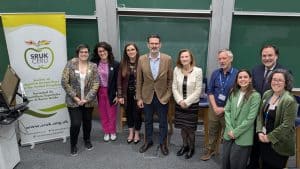London, UK, March 20, 2025
On January 30, the House of Lords Science and Technology Committee issued a letter to the UK government raising serious concerns about the impact of the current visa system on attracting STEM talent. The Committee highlighted how high upfront visa costs and restrictive policies are deterring international researchers, ultimately weakening the UK’s position as a global hub for science and innovation. SRUK/CERU also expressed similar concerns in a press release on January 29, emphasising that visa costs and the Immigration Health Surcharge create significant financial barriers for researchers.
We are disappointed by the UK government’s response, which does not acknowledge the full extent of the problem. The government has dismissed the House of Lords Science and Technology Committee’s proposal to ease financial burdens on researchers by reducing upfront visa costs, stating that it is “not in a position to accept this recommendation”. While it claims that UK visa costs are “broadly competitive”, evidence from the Royal Society shows that the UK has the highest upfront visa costs amongst comparable countries, with increases of up to 58% since 2021 and up to 126% since 2019. The requirement to pay the Immigration Health Surcharge upfront for the entire visa duration further exacerbates financial strain, particularly for early-career researchers and their families.
The UK must take meaningful action to remain competitive in the global race for talent and reap the societal and economic benefits from new research and development. We urge the government to reconsider its approach and implement reforms that reduce financial and procedural barriers for international scientists. As outlined in our previous statement, suggested amendments include lowering visa costs, removing or reducing the Immigration Health Surcharge or allowing its payment in installments, expanding flexibility in visa eligibility, and ensuring the visa system accounts for the high mobility of academic careers by introducing more flexible and hybrid visa routes that allow researchers to move between institutions and projects, thus aligning with UKRI’s strategic objective of supporting talent through appropriate visa mechanisms.
SRUK/CERU remains at the disposal of the UK Government and the UK Parliament to discuss the barriers to attracting global talent to the UK and ways to improve the UK’s research, development, and innovation system.
About SRUK/CERU
The Society of Spanish Researchers in the UK (SRUK/CERU) is a non-profit organisation established in 2012 representing Spanish nationals working in R&D in the UK. With over 720 members, SRUK/CERU has actively monitored the challenges and opportunities associated with Brexit and their impact on Spanish researchers both in the UK and elsewhere. Through its surveys and other initiatives, SRUK/CERU aims to address the challenges posed by Brexit and advocate for the interests of its members. The Society engages with key stakeholders, including academic institutions and governmental bodies, to inform policy and drive positive change. SRUK/CERU also leads the EU-funded project CONNECTS-UK, which brings together European research diasporas, and coordinates the Science Policy and Diplomacy Commission within the Network of Spanish Scientists and Researchers Abroad (RAICEX).
For more information, please contact:
Dr Igor Arrieta, Head of Science Policy [email protected]



